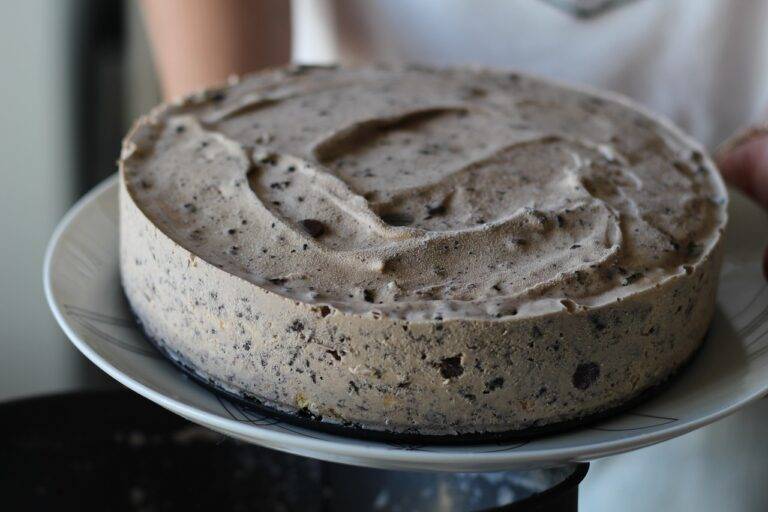Olive Oil and Its Role in Anti-Inflammatory Diets: All panal.com, Get cricket id, Gold 365
all panal.com, get cricket id, gold 365: Olive oil has long been touted for its numerous health benefits, with researchers now highlighting its role in anti-inflammatory diets. From reducing inflammation to protecting against chronic diseases, this golden elixir is a staple in Mediterranean cuisine and is beloved by health enthusiasts worldwide.
What makes olive oil so special, and how can it be incorporated into an anti-inflammatory diet? Let’s delve into the science behind this liquid gold and explore its impact on our overall health.
The Power of Olive Oil
Olive oil is rich in monounsaturated fats, specifically oleic acid, which has been linked to a reduced risk of heart disease. Additionally, olive oil contains antioxidants, such as vitamin E and polyphenols, which help fight oxidative stress and inflammation in the body.
One of the key components of olive oil that sets it apart is oleocanthal. This compound has been shown to inhibit the activity of COX enzymes, similar to how anti-inflammatory drugs like ibuprofen work. By reducing inflammation at the cellular level, olive oil may help alleviate symptoms of conditions such as arthritis and inflammatory bowel disease.
Incorporating Olive Oil into Your Diet
When it comes to incorporating olive oil into your diet, quality matters. Opt for extra virgin olive oil, which is less processed and retains more antioxidants compared to refined oils. Use it for salad dressings, saut驮g vegetables, or drizzling over cooked dishes to reap the full benefits of this heart-healthy oil.
For those following an anti-inflammatory diet, olive oil can serve as a nutritious alternative to saturated fats like butter or lard. Replace unhealthy fats with olive oil in your cooking to reduce inflammation and promote overall well-being.
Cooking with Olive Oil
When using olive oil for cooking, it’s essential to be mindful of its smoke point. Extra virgin olive oil has a relatively low smoke point compared to other oils, making it more suitable for low to medium heat cooking. For high heat cooking methods like frying, opt for refined olive oil or other oils with higher smoke points.
Experiment with different types of olive oil to find the flavor profile that suits your palate. Some varieties may have a more robust or peppery taste, while others are milder and fruitier. Incorporate olive oil into your dishes to elevate flavors and boost the nutritional value of your meals.
Health Benefits of Olive Oil
Studies have shown that the Mediterranean diet, which is rich in olive oil, fruits, vegetables, and whole grains, is associated with a lower risk of chronic diseases such as heart disease, cancer, and diabetes. The anti-inflammatory properties of olive oil play a significant role in the health benefits of this dietary pattern.
By consuming olive oil regularly, you can improve your lipid profile, reduce inflammation, and lower your risk of developing chronic diseases. Incorporate a variety of plant-based foods along with olive oil to create a balanced and nutritious diet that supports overall health and well-being.
FAQs
1. Is olive oil healthier than other cooking oils?
While all oils have their own unique benefits, olive oil stands out for its high content of monounsaturated fats and antioxidants. Choose extra virgin olive oil for maximum health benefits in your cooking and meal preparation.
2. Can olive oil help with weight loss?
While olive oil is calorie-dense, it can still be part of a healthy weight loss plan when consumed in moderation. Incorporate olive oil into a balanced diet along with regular physical activity to support your weight loss goals.
3. How should olive oil be stored?
To preserve the freshness and nutritional value of olive oil, store it in a cool, dark place away from heat and light. Keep the bottle tightly sealed to prevent oxidation, which can degrade the quality of the oil over time.
4. Are there different grades of olive oil?
Yes, olive oil is graded based on factors such as acidity levels, taste, and production methods. Extra virgin olive oil is the highest grade and is unrefined, while refined olive oil undergoes processing to remove impurities.
5. Can olive oil be used for skincare?
Olive oil is rich in antioxidants and moisturizing properties, making it a popular ingredient in skincare products. You can use olive oil as a natural moisturizer, makeup remover, or hair conditioner for healthy skin and hair.
In conclusion, olive oil plays a crucial role in anti-inflammatory diets due to its beneficial effects on inflammation, heart health, and overall well-being. By incorporating this versatile oil into your cooking and meal planning, you can harness its potent properties and enjoy a delicious way to support your health goals. Embrace the power of olive oil and experience the transformative effects it can have on your health journey.







